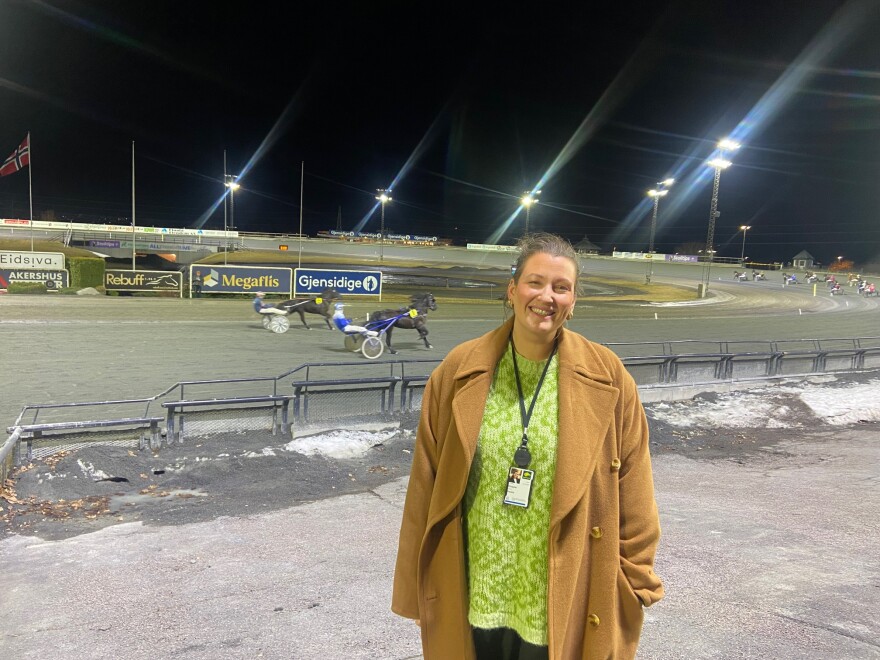Editor's Note: This is a companion piece to “High Stakes: Gambling Addiction, Beyond Borders” a three-part series looking at the public health movement to address gambling in Massachusetts and the United States, and what can be learned from two countries with very different models of gambling regulation: Norway and the United Kingdom.
While the majority of gamblers in Norway play online casino games or bet on sports, almost 10% still take part in one of the traditional forms of betting: horse racing.
On one spring evening at the country’s main racetrack in Oslo, the stands were empty, as most people use phone apps to bet on the horses. A few people stood on the sidelines as horses pulled jockeys on carts around the track in short spurts. Above the stands, a few dozen people were gambling quietly in a cafeteria, where monitors were broadcasting the races.
Among the spectators was Hedda Skappel, who runs the problem gambling division of Norsk Rikstoto, the state-run company that controls horse racing in Norway. Her job is to put into practice one of the government’s addiction-prevention measures: reaching out to people at high risk of a gambling disorder.
“People usually have a hard time admitting to maybe both themselves and others that they have a problem, which makes our job a lot more difficult,” she said.
Skappel, a nurse by training, said horse racing is a less addictive type of gambling than online sports betting or casino games because the pace is much slower. Instead of one spin every few seconds, gamblers may wait 10 minutes for the race to finish.
Nevertheless, out of the 170,000 people who bet on the horses in Norway, she said 300 to 400 are considered at high risk of addiction.

When Skappel’s staff notices a customer’s spending or time gambling go up dramatically, they may call “just to get a kind of reality check, how aware they are of their own behavior,” she said.
She said the youngest customers — 18 to 30 — are most receptive to her staff’s concerns. It’s mostly the older crowd that gets annoyed.
Skappel said she once reached out to a 94-year-old horse better after his grandson called her office “and kind of insinuated that he was playing his inheritance away,” she said. When Skappel called the grandfather, “he said to me, ‘I've been playing or betting on a horse for 75 years. And I definitely don't need your help.’ So I was like, ‘OK, I respect that. Thank you.’”
When gamblers decide they are in trouble, Skappel leads them through several options. They can install software on their phones that disables online gambling. They can pause gambling for specific periods — perhaps a week after payday — or restrict themselves to only playing on Saturdays. They can also put themselves on a national self-exclusion list.
“Some people may say that the Norwegian regulation is quite extreme,” she said. “But I think that's why it works so well.”




